Latest Articles
Sort by SDGs…
Or by Style…

The Role Of Emerging Technologies In Ocean Conservation
In the battle for our oceans, technology stands as a powerful ally. Drones tirelessly combat plastic pollution, biomimetic robots safeguard fragile deep-sea ecosystems, and AI systems protect magnificent whales. These innovations are the keys to unlocking a brighter future for our oceans, offering hope and solutions where they're needed most.

Microalgae and More: Is Algaculture Our Sustainable Saviour?
In a thought-provoking analysis, Pearl Jennings explores the potential of algaculture as a sustainable solution to escalating global demands for energy, food, and resources. Highlighting the versatility of algae and its resource efficiency, the article scrutinizes various aspects, from combating malnutrition and minimizing eutrophication to carbon sequestration and biofuel production.

Ecotourism at the Jersey Shore… will it work?
Sam Goel lives on the Jersey Shore, a popular tourist destination in New Jersey, USA, which is critical to the local economy. However, this tourism comes at a cost to the natural environment. Sam discusses how the introduction of eco-tourism policies in order to combat the dangerous levels of pollution in local waters affecting wildlife.
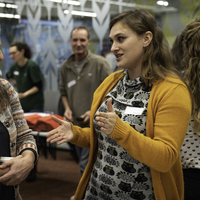
In Conversation with Dr Davina Derous
Dr. Davina Derous is a systems physiologist and a Senior Research Fellow at the University of Aberdeen, who is currently focusing her research on the study of genes between land and aquatic mammals. In a recent interview with the Youth STEM Matters Team, Dr Derous shared insightful perspectives on the effects of the environment on animal health, the differences between human and animal health, the future of the peer review process and the need to increase accessibility in STEM.
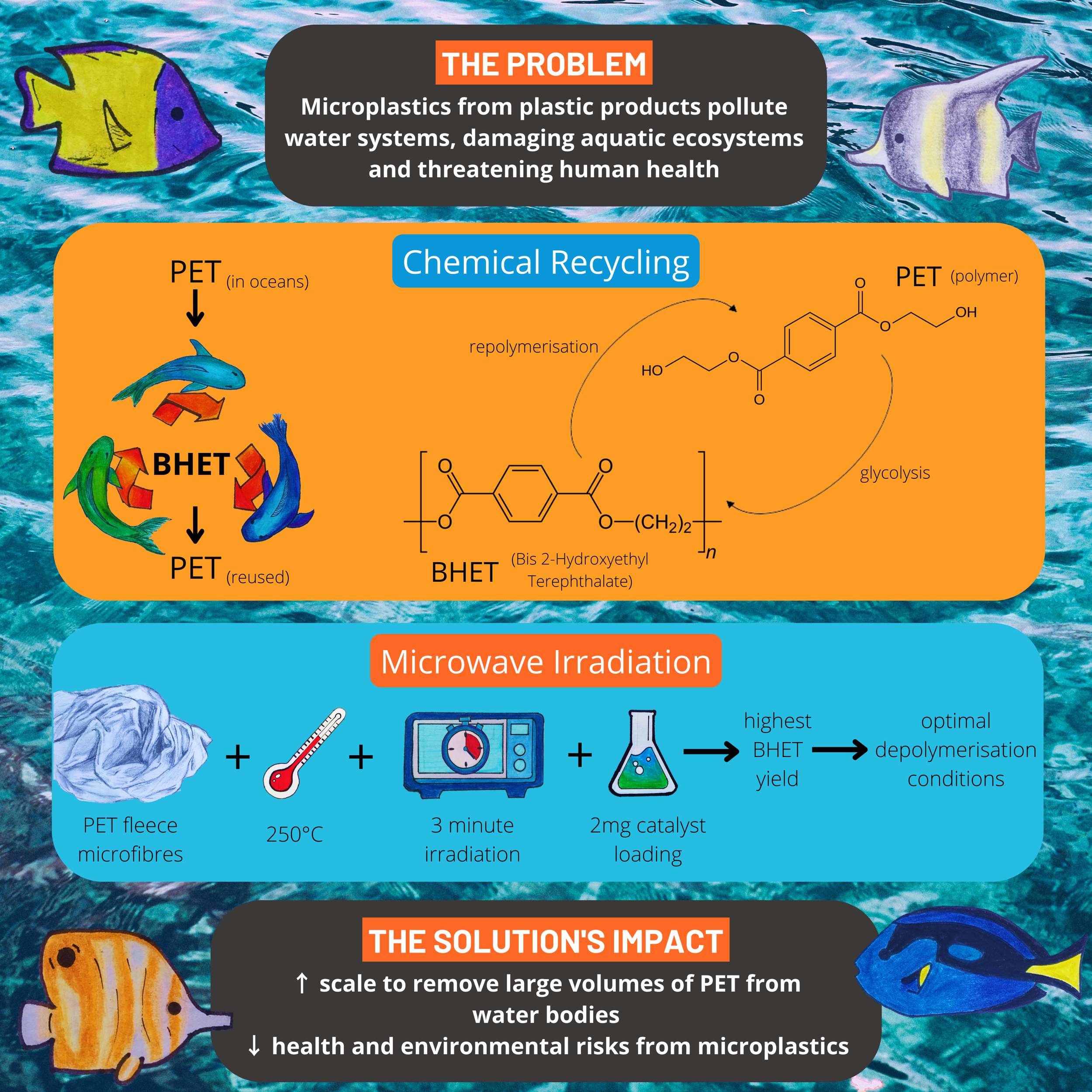
Optimising the Depolymerisation of PET Fleece Microplastics Through Microwave Irradiation
Millions of tonnes of plastics are estimated to enter the ocean each year, including polyethylene terephthalate (PET), the world’s most used plastics. Although PET recycling is common, Rya Adronov presents how optimising this process could ultimately reduce the excessive amount of PET microfibres polluting our oceans in the future.
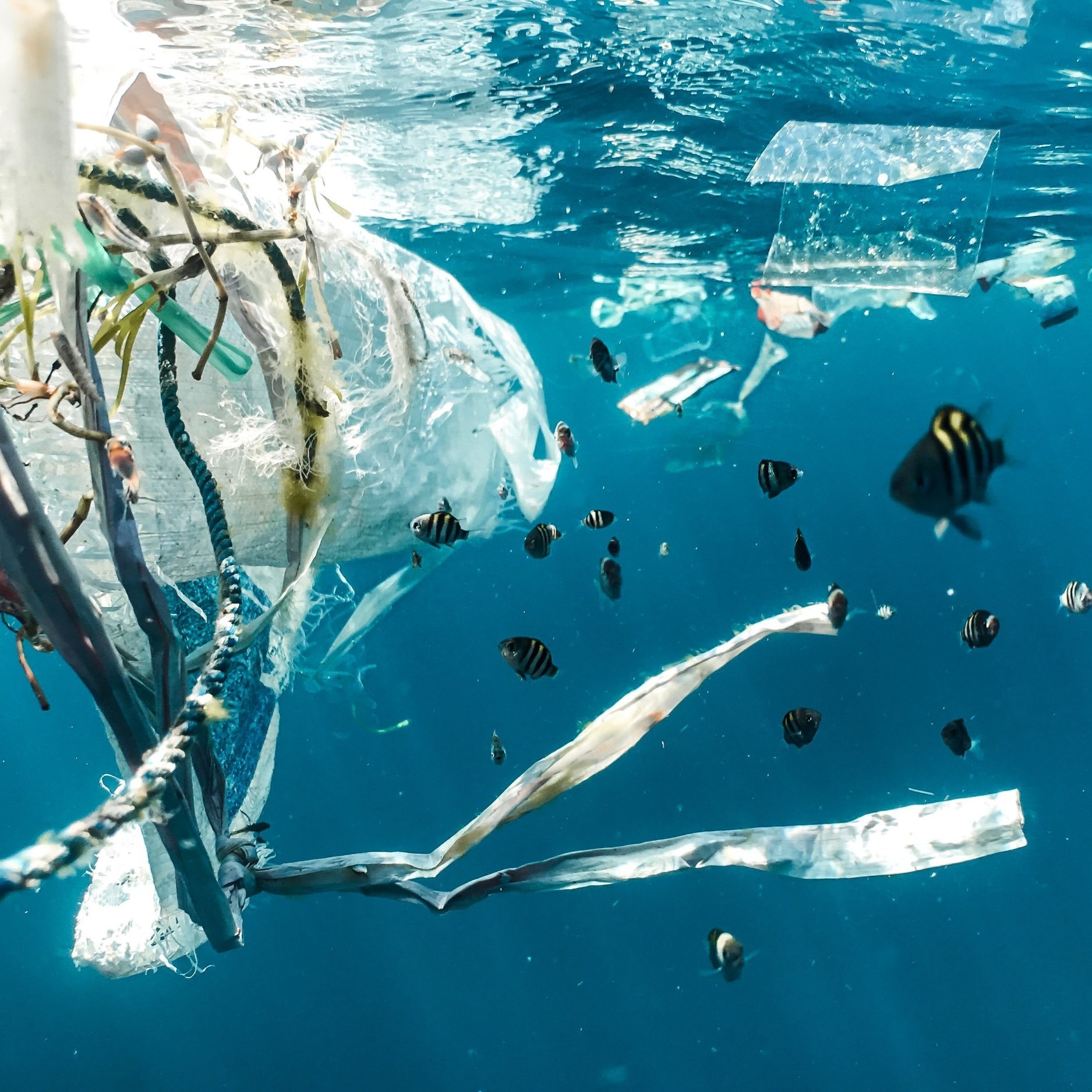
World Ocean Day: 30 by 30 - A Global Conservation Plan
On 8th June 2022, we celebrate World Ocean Day – a chance to understand the significant role our global ocean has in the world, as well as learn about the steps we can take to protect it. With this year’s theme focussing on ‘Revitalisation: Collective Action for the Ocean’, Iona Finney shares the science behind, progress of and challenges achieving 30 by 30 - a global conservation action plan.

Exploring IPCC Report II - Impacts, Adaptation, and Vulnerability
The second report in the IPCC Sixth Assessment Report series delves into the extensive damage caused by climate change and the urgent need for mitigation and adaptation. It emphasizes the global significance of limiting global warming to 1.5⁰C and highlights the importance of collaborative efforts to safeguard nature and human well-being in the face of climate change.
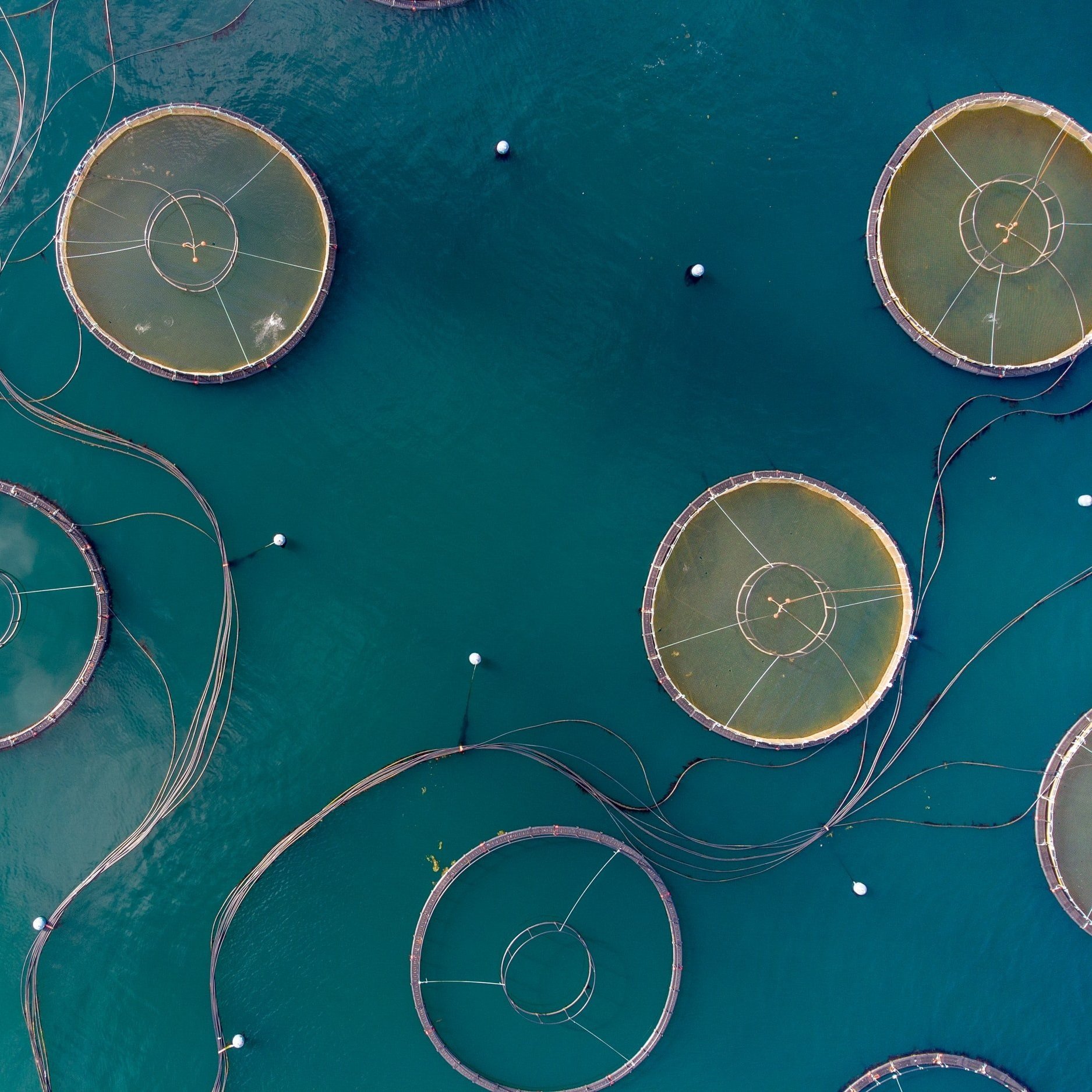
Innovating More Sustainable Aquaculture
Aquaculture provides almost half of all seafood eaten globally. But, farming seafood is not without environmental impact, and can disrupt the balance of seafood in the ocean. Kavya Venkatesan & Nina Khera look into how technology is being used to create more sustainable aquaculture.

Coral Reef Controller Project
As a solution towards achieving SDG 14: Life Below Water, Laura Maisvoreva shares her experience of innovating the ‘Coral Reef Controller’ - a ‘proof of concept’ project which won awards at science fairs and competitions across the globe.

Did Tardigrades Meet the Quantum World? Or Was it Just a (Micro) Hoax?
In a nuanced exploration of quantum entanglement, Izzy Johnson and Yordanose Tefferi delve into the world of tardigrades - resilient microorganisms known for their ability to endure harsh environments. This article critically examines recent claims regarding tardigrades' entanglement with qubits, offering a balanced perspective on the scientific community's response and the need for further research and peer review.

Cyclo.Plas 2: A Dual Focus Development as Alternative Materials to Plastic by Upcycling Fish Scale Waste Components
Plastic is a useful material, but plastic pollution is a huge issue for our planet and human health. Using biomimicry of fish scale composition, calcium salts and collagen, Jacqueline Prawira has developed a new material - Cyclo.Plas 2 - as an alternative to plastic, promoting a more circular economy and addressing the plastic problem.

Biomimicry of Aquatic Organisms in Engineering
While engineering can create outstanding products for human convenience, nature’s adaptations have been perfected over 3.8 billion years, and therefore have huge potential use as inspiration to solve human challenges. Alvina Mishra delves into the potential of mimicking underwater life, and explores the challenges of commercialising biomimetic ideas and possible ways to overcome them.

Exploring the IPCC Report — Climate Change and the SDGs
Drawing on the findings of more than 6000 published articles, the recent Intergovernmental Panel on Climate Change (IPCC) report is a comprehensive assessment of the impact and future risks of climate change. Kavya Venkatesan delves into the report’s findings, and what they mean for the SDGs.

The Interdependence of Human Health and the Health of Planet Earth
Human and wildlife wellbeing are inextricably linked. From medicine, to food production, to disease; human health depends on the health of the ecosphere. With artwork by Kiera McCabe, Laura Maisvoreva explores this interdependence.

An Introduction to Climate Change
Climate change poses one of the most principal threats to the biological diversity of the planet and is projected to become an increasingly important driver of change in the coming decades. Fathia Bello Tolani gives an introduction to climate change and its impacts.
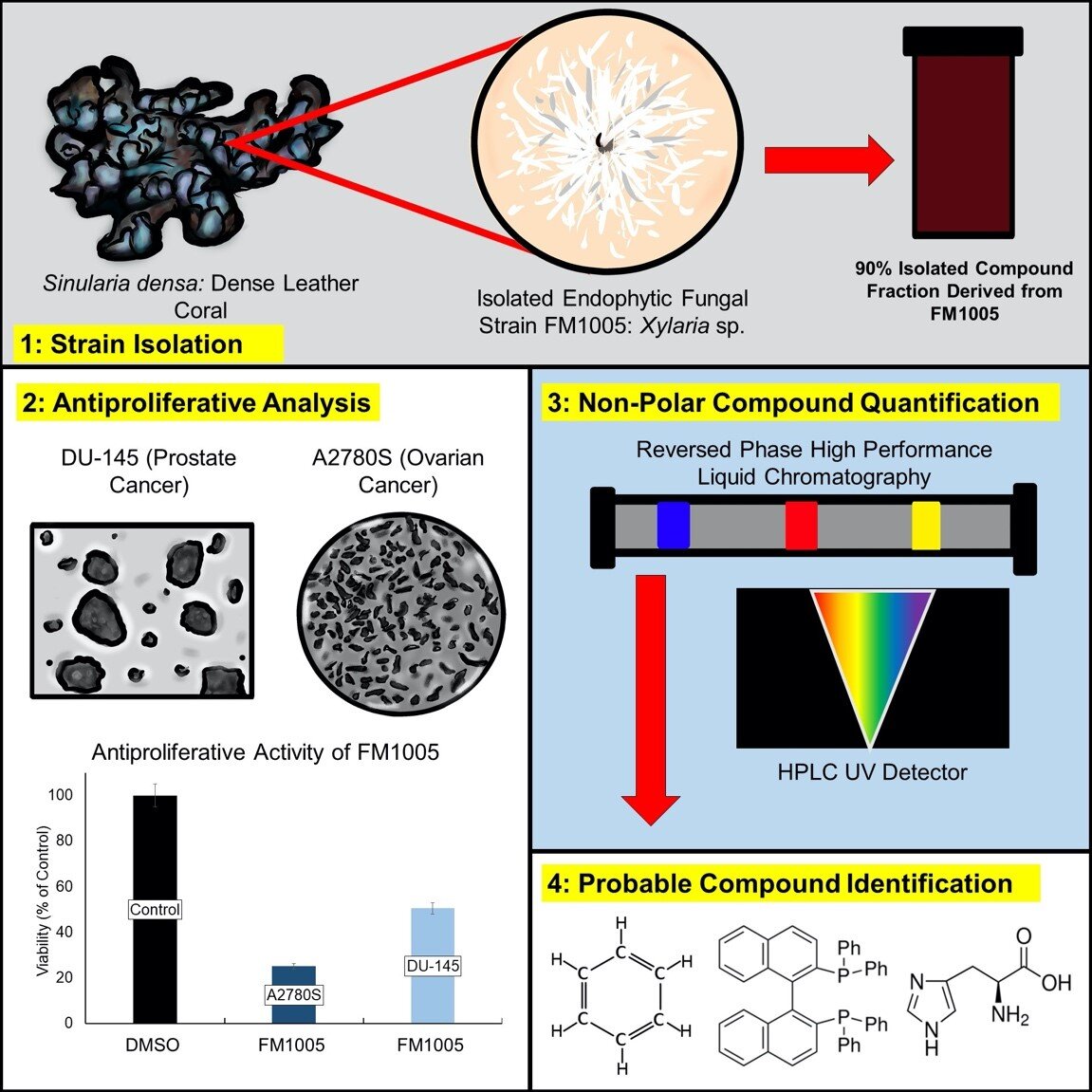
Utilizing HPLC to Analyze the Presence of Anticancerous Compounds Residing from the Isolate FM1005 (Xylaria sp.) Derived from Sinularia densa
The diversity within Hawaii's intertwined marine reef systems opens the door for interdisciplinary knowledge to be applied and expanded upon. Lela DeVine dives into research to identify potentially anticancerous marine sources through marine-based pharmacology.

Robotizing America
As technology develops, robots are increasingly being used to do jobs that were previously done by humans. But, what are the consequences of this? Alana Cho discusses how, now more than ever, we need to face the ever growing fate of our world and consider whether the benefits outweigh the drawbacks.

Nature Through the Lens
At a time when many of us can’t get outside as much as we’d like to, a connection to nature is something that many will miss. Simply viewing photos of nature has been shown to make you more relaxed, so this Nature Photography Day, we’ve compiled photos taken by young people around the world!

The Importance of Science and Youth in the Modern World
Our world faces some big challenges: poverty, the climate crisis, the decline of the natural environment… Eimear Stephenson writes about why we need science to solve these challenges, and how important youth are in building a better and more sustainable future.

In Conversation With Dr Imogen Napper
Dr Imogen Napper is a marine scientist, a National Geographic Expedition Scientist and a Sky Ocean Rescue Scholar. She took time out of her busy schedule to speak to some of our team members about her research and career via a video call.


















